Have a question?

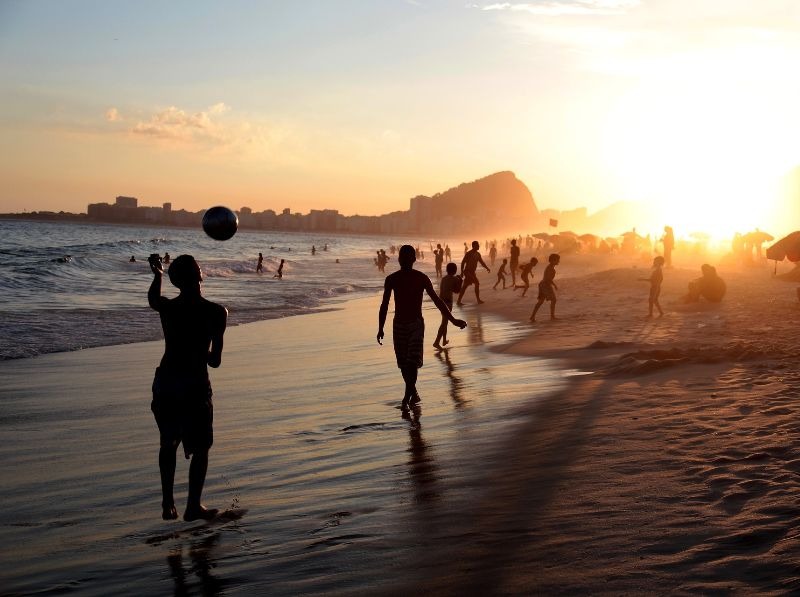
Hear that drumbeat? That’s the rhythm of Rio de Janeiro, and this spirited city has a samba dance circle (and a caipirinha cocktail) with your name on it! Locals tell us these are 14 things you have to do in Rio de Janeiro.

Copa… Copacabana! Do you already have a jazzy tune stuck in your head? That’s because Rio de Janeiro’s beaches are so fantastic that everyone is crooning about them. From Barry Manilow’s catchy tune to the equally infectious bossa nova hit “The Girl from Ipanema”, Rio’s beaches will make you want to sing!
Rio de Janeiro is strategically situated along the Atlantic Ocean and at the mouth of stunning Guanabara Bay, making it perfect for sunbathing with a breathtaking backdrop. But don’t expect a lazy scene on Rio’s sandy stretches. Copacabana and Ipanema are very active beaches attracting throngs of city dwellers known for donning the skimpiest of suits.
Copacabana and Ipanema are among Rio's most popular beaches, but locals tell us you'll have multiple choices. Benefit from local, insider advice. Our trip planners say that Praia Vermelha (Vermelha Beach) is beautiful, but generally more secluded.
Pack your dancing shoes — a trip to Rio is incomplete without shuffling your feet in a fast-paced samba circle. Locals tell us that samba is a spirited rhythmic dance of Afro-Brazilian origin that’s central to Brazilian culture. In fact, this energetic shimmy is often called the “heartbeat of Brazil” for its infectious drumbeat. And that lively rhythm is sure to bring even the timidest wallflower to the dancefloor.
If you want to experience a roda de samba, or samba jam session, locals suggest visiting the Samba do Trabalhador. It's one of the most famous weekly dance parties in Rio, strategically scheduled for Mondays when many musicians have the day off.
Or, locals say you can head to Lapa, a neighborhood known for its bar scene. There, you'll find all-night samba parties spilling out into the plaza under the Arcos de Lapa, a grand 18th-century aqueduct.
Locals tell us that ordering a refreshing caipirinha is a must in Rio de Janeiro. Pronounced “kai-purr-REEN-yah,” this (powerful!) cocktail is made with lime, sugar, ice, and cachaça — a sugarcane spirit. The lime is muddled rather than juiced, giving this delicious drink an extra citrus-y boost — perfect for sipping seaside.
What's your travel style? Our trip planners tell us that you can enjoy a caipirinha at upscale nightclubs (like the ones near Ipanema Beach), at trendy bars in Botafogo, Rio’s hipster neighborhood, and throughout the city.
If you’re eager to start a conversation with a local but not sure how, just ask how you make the perfect caipirinha. You’ll have the whole bar debating in minutes.
Situated on a hill to the southwest of Rio’s downtown, locals tell us that Santa Teresa is a gorgeous neighborhood known for its arts scene. As one of the oldest sections of the city, these leafy cobblestoned streets are lined with artists’ studios and galleries housed in restored colonial homes. Enjoy Santa Teresa’s architecture and art all-in-one at the Museu da Chácara do Céu, a museum housed in a stately mansion.
And you won’t be left guessing where Santa Teresa’s artists get their inspiration; the neighborhood’s elevated perch affords excellent views of Rio and Guanabara Bay.
Perched on the top of Rio de Janeiro’s Mount Corcovado is Christ the Redeemer, a ten-story statue of Jesus Christ that is the city’s most famous landmark. Not only is it worth venturing to the top of this mountain for an up-close look at this “New Seven Wonders of the World,” but you’ll also get a spectacular 360-degree view of Rio and its surrounding waters. (And don’t worry, there’s a train!)
Locals tell us that Mount Corcovado is just one of many vantage points from which to look down on Rio’s splendor. You could also take a tram to the top of Sugarloaf Mountain, a sheer-sided cliff that sits at the entrance to Guanabara Bay. Or, hop on an open-top jeep tour in Rio’s Tijuca National Park, an urban forest in the heart of the city. OR, head to Vista Chinese, where you can gawk at the city from a 19th-century pagoda.
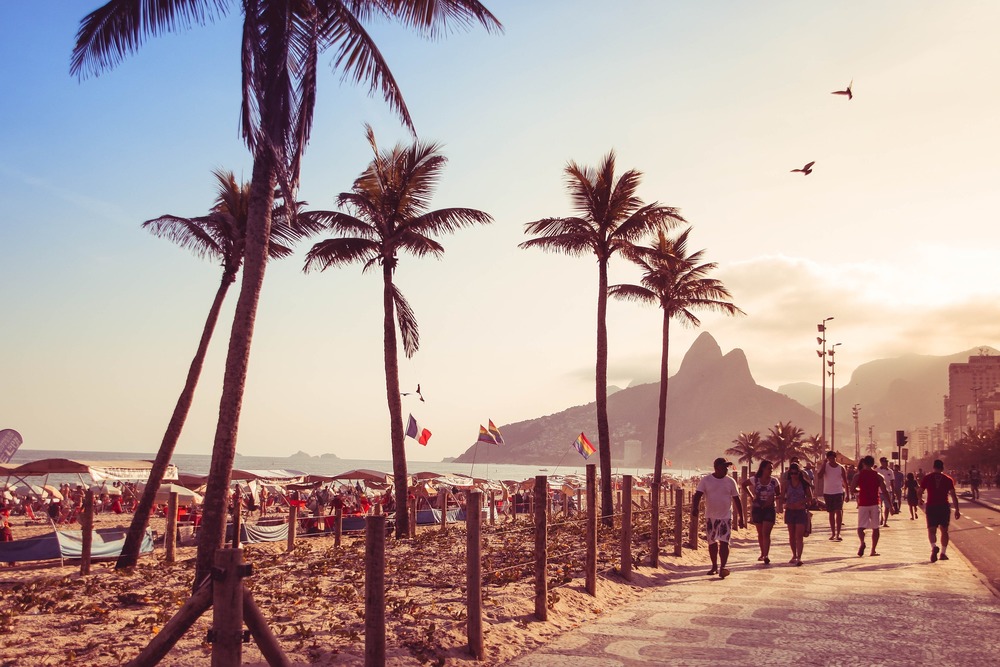
Equally as famous as Rio’s sandy beaches are the city’s black-and-white beachfront promenades. Found along Copacabana and Ipanema Beaches, these art deco mosaic boardwalks were designed by Brazilian landscape architect Roberto Burle Marx in the 1970s.
Seen from above, these promenades are works of art — and you’re likely to spy beauty in another form while striding down them. Here, you’ll see the tall, tan, young, and lovely as described in the famous song “The Girl from Ipanema”.
With nearly 6.5 million residents, Rio de Janeiro is a bustling metropolis. But locals note that Rio is also home to one of the largest urban forests in the world, Tijuca National Park.
To give you an idea of this lush forest’s scope: take New York City’s Central Park, multiply it by ten, throw in more than 30 waterfalls, and add plenty of monkeys swinging overhead. Then, you’ll have Tijuca, a great place to trade in the crowds for a lungful of fresh air (and less than 10 miles from Rio’s Centro neighborhood).
Locals tell us that another serene escape is Jardim Botânico do Rio de Janeiro, a vast botanical garden that has been boosting Rio’s oxygen supply since the early 1800s. The garden is home to a picturesque stroll flanked by giant palm trees and a collection of more than 1,000 different species of orchids.
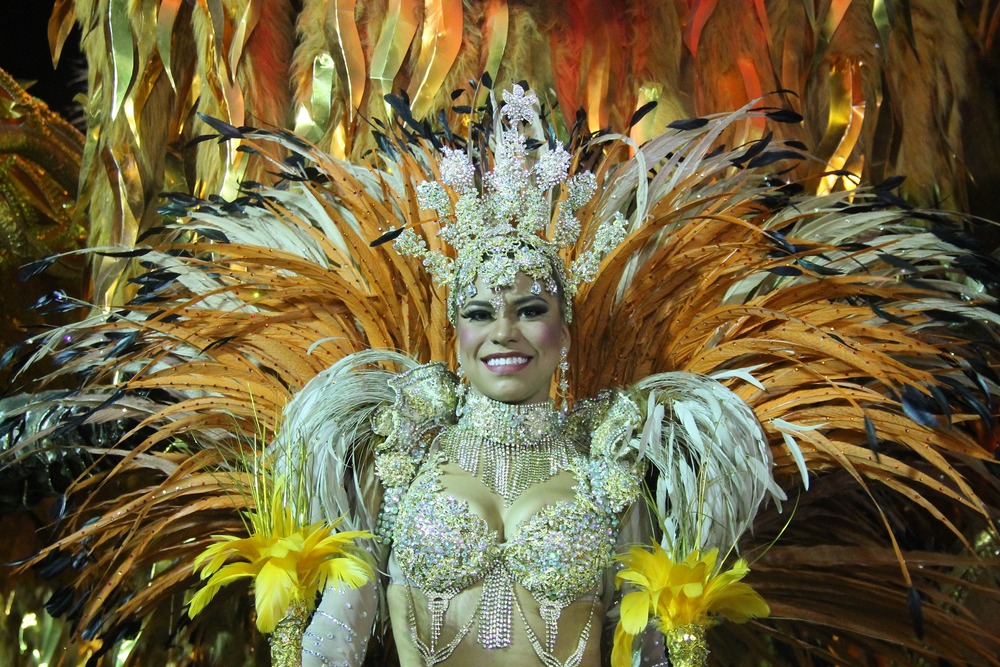
If you’ve ever been to Mardi Gras in New Orleans, then you have a tiny taste of Rio’s Carnival — and that’s saying something. Celebrated each year before Catholicism’s fasting season of Lent, Carnival is an over-the-top raucous celebration with floats, parades, and dancing… lots of dancing. The week-long festival shuts the city down and attracts millions of Brazilians and visitors alike who come to samba in the streets.
If that doesn’t capture just how huge this festival is, then maybe this will: Rio has a stadium solely dedicated to Carnival. The Sambadrome hosts a fierce, nationally televised competition between Rio’s many samba schools. The stadium holds 90,000 and is always packed with spectators eager to cheer on their favorite performers.
Feijoada is a savory stew and a staple in Brazilian cuisine. Made with black beans, pork, beef, vegetables, and a slew of spices, this hearty dish is often served with rice or farofa, toasted cassava that has a salty, smoky taste and texture similar to couscous.
Although this stew is eaten year-round, no matter the temperature outside, many restaurants treat feijoada as a special only served on specific days. Our trip planners tell us that Casa de Feijoada, in the neighborhood of Ipanema, is a solid spot. This restaurant serves feijoada all day, every day, and also offers many variations on the country’s favorite meal.
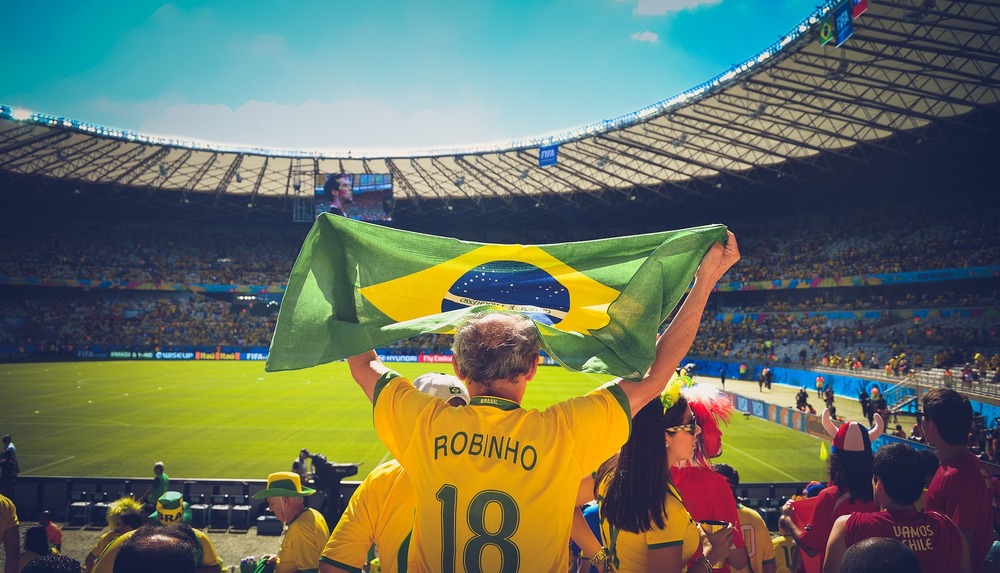
Futebol (or soccer for Americans) reigns supreme in Brazil. The country has won more FIFA World Cups than any other and gave rise to the sport’s greatest player, Pelé. And Rio is home to Brazil’s biggest stadium, Maracanã — a 78,000-seater that also hosted the opening and closing ceremonies of the Rio Olympics in 2016.
Catch a game (and futebol fever) at Maracanã by watching Flamengo, Rio’s professional team, duke it out on the field.
Locals tell us that you don't need to set foot in a stadium to see some superb futebol. Find a pick-up game on the beach — our trip planners in Rio note that Copacabana’s postos 2 through 6 are well-known for their sports scene. But be forewarned: you need to have some serious skills to play with the locals.
While Rio de Janeiro might be best known for its beaches, locals say that their city's world-class museums are not to be overlooked. Get a glimpse into the future at the Museu do Amanha (Museum of Tomorrow), where exhibitions provide a scientifically researched prediction of what the world will look like in 50 years. Or peruse thousands of works of modern art from international and Latin American artists at Rio’s Modern Art Museum.
And to find out what all the cultured cariocas will be talking about that week, head to Centro Cultural Banco do Brasil. This institution, housed in a beautiful 19th-century downtown building, has a calendar full of visual arts, music, theater, and cinema programming.
From vivid sunsets to vibrantly painted homes, Rio de Janeiro is known as a city full of color. Don’t end your trip before taking an artful photo of Rio’s kaleidoscope cityscape.
Snap a selfie at the Selaron Steps, a staircase decorated by thousands of tiles in every hue by artist Jorge Selarón. Or head to Orla Conde boardwalk in Rio’s downtown district. This sidewalk stretches along Guanabara Bay and is lined by Etnias, a 560-foot long mural — the second largest in the world. Depicting humankind’s indigenous ancestors, the painting was created as a symbol of unity for the 2016 Olympics.
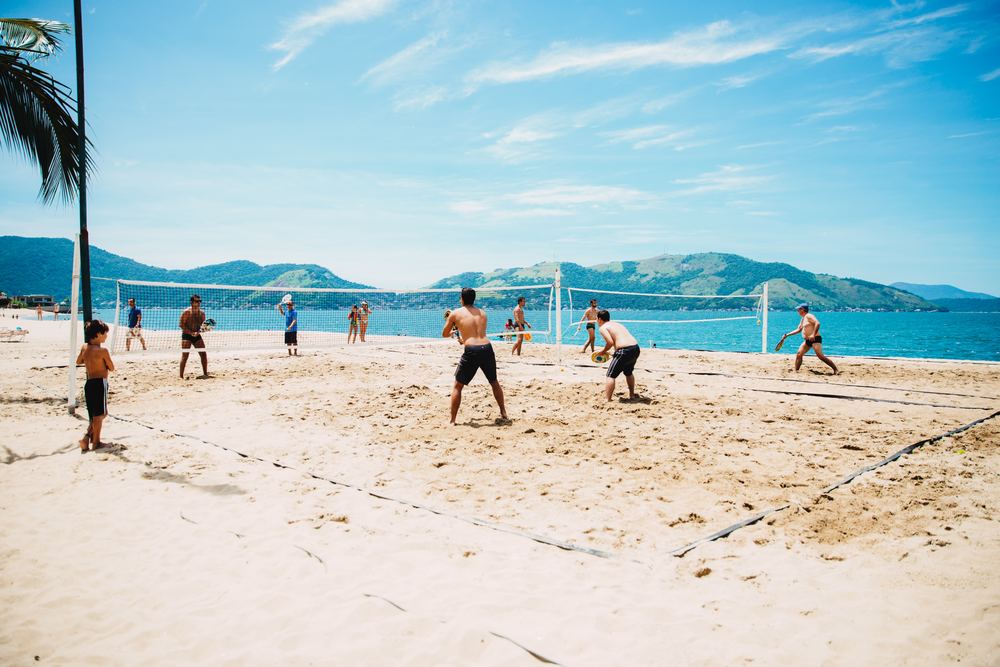
You don’t get a worldwide reputation for being home to some of the best beach bodies if you’re a nation of couch potatoes. Rio de Janeiro is an active city.
Locals tell us that Lagoa Rodrigo de Freitas is a lovely lake in the middle of Rio, just north of the posh beachside neighborhoods of Ipanema and Leblon. Go for a run on the 4.5-mile path that circles the waters’ edge. Or head to the beach for a yoga session or a pick-up volleyball game. You can also try your hand at frescobol, a Brazilian version of tennis played with wooden paddles.
Locals rave that the sunsets over Rio de Janeiro are out-of-this-world gorgeous. In fact, they are so impressive that the people often give them a standing ovation!
There are tons of great viewing spots to join Rio’s residents in the nightly ritual of applauding the sun’s descent. Locals tell us that a favorite is Mureta de Urca, a sea wall in the neighborhood of Urca which juts out into Guanabara Bay. There, you can oohh and aahh as the sky changes hues. (Ideally with a cold drink in your hand.)
How should we contact you?
Call
Thank you! We'll get back to you as soon as possible!
Click to register and track your question!
If you would like to follow up with us:
+1 (855) 782-3006